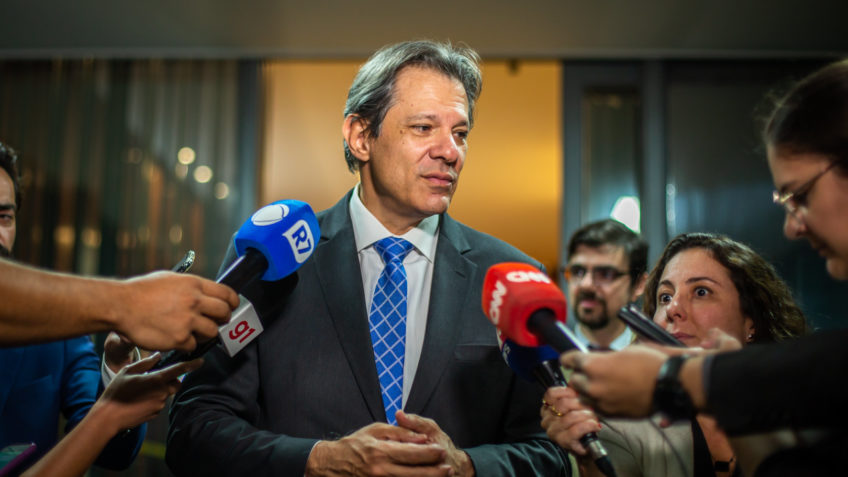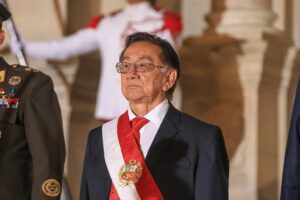
Minister of Finance states that Brazil’s presidency of the group could be an opportunity for “sustainable reglobalization”
The Minister of Finance, Fernando Haddad, said this Thursday (23.Nov.2023) that Brazil can use the presidency of the G20, a group that brings together the 20 largest economies in the world, to propose the reform of multilateral institutions, such as the IMF (International Monetary Fund), the World Bank and the WTO (World Trade Organization). According to him, the Brazilian mandate in the group will serve as an opportunity for a “sustainable reglobalization”which promotes the energy transition.
The minister made the statements at a meeting at Palácio do Planalto for the installation of the G20 National Commission. In charge of coordinating the Brazilian mandate in the group, which begins on December 1st and will last 1 year, the commission will organize the 104 meetings planned during this period. The most important will be the G20 Summit, scheduled for November 2024, in Rio de Janeiro.
Accompanied by the president of the BC (Central Bank), Roberto Campos Neto, Haddad said that the G20 has become the main forum for discussions between countries with the crisis in traditional multilateral organizations. “With the crisis of multilateralism, [o G20] It is the forum with the most impact in the world. This is where we can unlock fundamental issues for Brazil”these.
According to Haddad, countries need to understand each other to avoid fragmentation of the global economy. “From an economic point of view, the world is at a crossroads: either we continue to move towards increasing fragmentation, with the formation of protectionist blocs and with unpredictable consequences for geopolitical stability, or we implement a new globalization, this time placing socio-environmental issues at the center of our concerns”said the minister.
For him, a new globalization can be created. According to Haddad, the G20 will serve as an important instrument to restore the multilateral contribution between countries. In addition to the orientation towards the energy transition and sustainable development, this process would be carried out without repeating the mistake of deregulating the international financial system, which caused the 2008 economic crisis.
Haddad criticized the globalization that prevailed in the 1990s and 2000s because, according to him, the process resulted in the concentration of income, differences in development levels between countries and current climate change.
“We don’t have to fear globalization. It was done incorrectly and that is why it caused so much anguish, especially in the 2008 crisis and its aftermath. We have to recover multilateralism and the perspective of integration between nations, but this has to be done in another way”these. “Our strategic vision is not to return to the past, as some have suggested. It is a new socio-environmental globalization”he stated.
Latin America
In Haddad’s assessment, Brazil has the opportunity to guide the world economy in the next 12 months, meeting the interests of Brazil, Latin America and the Global South (developing and underdeveloped countries). “The G20 is our chance to get our hands dirty and make the external engine work in the best possible way for the interests of Brazil and other Latin American countries. It doesn’t happen every day that we have the chance to guide the work of the G20. We must use this opportunity to advance our vision of a more integrated world.”these.
Fulfilling the promises, the minister admitted, will face difficulties, with the emergence of wars and the return of protectionism in rich countries. “There are several factors over which we have no control: conflicts, wars, geopolitical issues of extremist forces, crises of multilateralism, with fundamental institutions, such as the UN [Organização das Nações Unidas], World Bank, WTO and IMF, functioning far below what they should. Not to mention the climate crisis and the return of protectionism in rich countries. We are not in a calm phase of world history”he assessed.
International taxation
Regarding the role of the Ministry of Finance in Brazil’s presidency of the G20, Haddad said that the economic area has some priorities, such as deepening the reform of international financial institutions to increase the representation of less developed countries and defending fair international taxation, with actions to curb tax evasion (transfer of resources to tax havens). The minister also promised an effort to resolve the external debt of poor countries.
“Our financial track priorities [do G20] will be working to prevent risks through effective coordination of economic and financial policies, placing inequality at the center of the global macroeconomic agenda, promoting the continuous flow of concessional resources [recursos de concessões de infraestrutura] for low- and middle-income countries, advance the resolution of the external debt of these countries, particularly African countries, and create appropriate mechanisms for risk sharing between public and private capital to promote equitable ecological changes”said Haddad.
With information from Agência Brasil
Source: https://www.poder360.com.br/economia/brasil-pode-usar-o-g20-para-pautar-reforma-do-fmi-diz-haddad/

